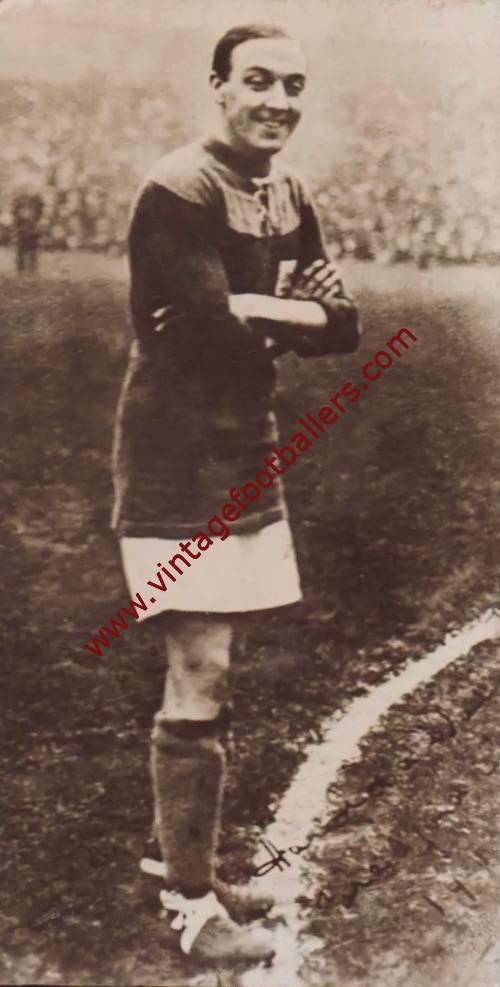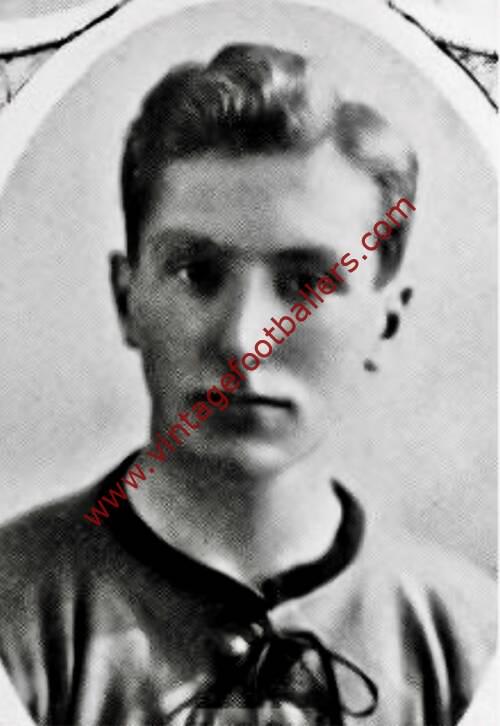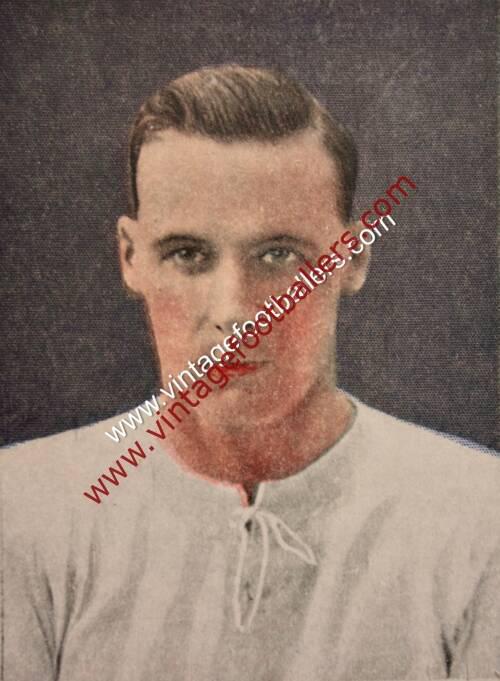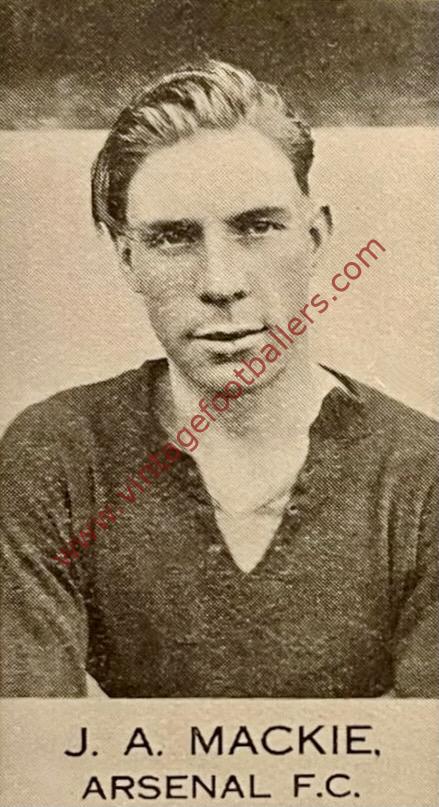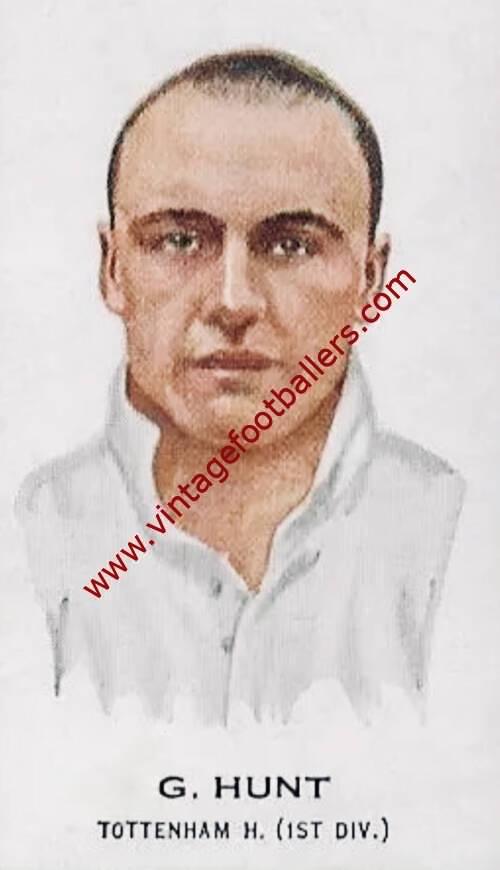Please choose your photo size from the drop down menu below.
If you wish your photo to be framed please select Yes.
Note: 16″x 20″not available in a frame.
Images can also be added to accessories. To order please follow these links
£8.95 – £49.95
Please choose your photo size from the drop down menu below.
If you wish your photo to be framed please select Yes.
Note: 16″x 20″not available in a frame.
Images can also be added to accessories. To order please follow these links
Umballa, India born centre forward Harold Walden began his career with Cliftonville and Linfield in Ireland, and played in Army football in 1908 and for Northern Nomads in 1909 before joining Yorkshire Combination club Halifax Town in October 1911 and First Division Bradford City two months later, making his Football League debut against Notts County in December that year.
He spent four seasons with The Bantams and was the club’s top scorer in 1911-12 with 14 goals in 21 appearances including hat-tricks in a 4-0 FA Cup win over Queen’s Park Rangers in January 1912 as The Bantams kicked off their FA Cup defence having won it in 1911, and in a 3-0 win over Tottenham Hotspur that April. Walden played in the third round second and third replays that saw The Bantams finally knocked out by Barnsley 3-2 at Bramall Lane, Barnsley themselves en route to dramatic and unique Cup glory only a month later.
That summer, he was part of the British amateur team that represented Great Britain at the Olympic football tournament, winning the Gold Medal. Walden played in all three matches and scored 9 goals, including a double hat-trick in the first match, a 7-0 win over Hungary at Stockholm on 30th June. He holds the record of being the ‘Highest British goal scorer within the Olympics’ and is still the fourth highest goal scorer overall within the Olympics. He also scored in Great Britain’s 4-2 victory over Denmark in the Final. Walden continued to play for Bradford City, although he suffered cartilage problems in 1913 and finally had surgery in 1914.
Walden played for The Army against The Navy in 1910 and 1911, and also served in the First World War with The West Yorkshire Regiment, rising to the rank of captain. Walden took the decision to re-join the Army in April 1915 and was commissioned into the 18th (Service) Battalion (2nd Bradford), The Prince of Wales’s Own (West Yorkshire) Regiment as a second-lieutenant. In 1917, he was at Étaples where he again damaged his knee jumping into a trench during training. Walden subsequently returned to Britain and was promoted to captain. Walden would then spend the remainder of the war as an acting adjutant stationed in Hull.
After the War ended he returned to Bradford City, scoring 4 goals in 12 appearances in the first post war season. He then joined Arsenal in 1920 after 25 goals in 58 appearances for The Bantams and played six times for The Gunners, twice in League games against Oldham Athletic in February 1921, scoring a single goal in their 2-2 draw at Highbury, and in four times in friendlies. With just those games to his name, he returned to Bradford at the end of the 1920-21 season, this time with Park Avenue, but he never made their first eleven before retiring.
Walden went into the music hall as a variety performer, touring England, Australia, China and India. He made his stage debut while still playing football, in 1919. He had also had a minor film career, which included starring in The Winning Goal, one of the earliest football-related films, in 1920. Walden also played himself in the 1948 film Cup-tie Honeymoon. He made 78 rpm records such as “Ronnie the Robin” together with “And Only Me Knows Why”, on the Imperial label as well as from Ernest Binns’ Arcadian Follies, ‘Mother I’m a Soldier’ and ‘Only Me Knows Why’ upon Parlophone. The latter was reviewed in The Gramophone magazine’s November 1939 edition.
NB in the photograph dated 2nd July 1912, he duels with the Finland defence playing for Great Britain in the Olympic Games semi final match in which he scored twice in a 4-0 victory.
| Weight | N/A |
|---|
